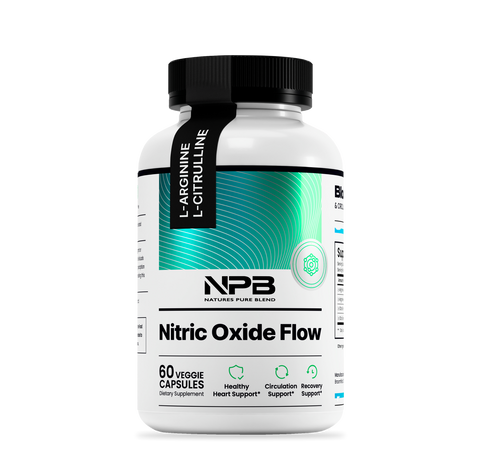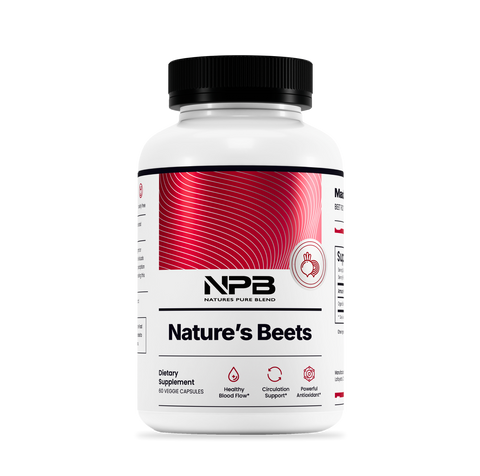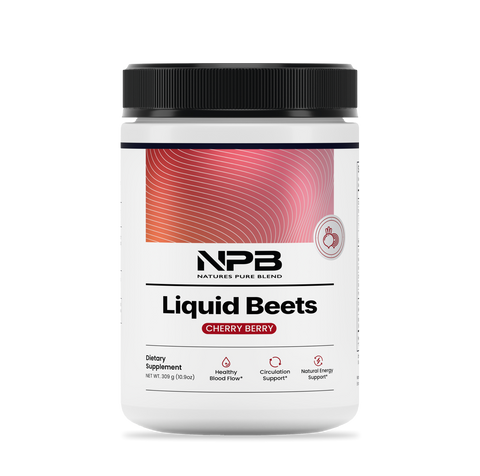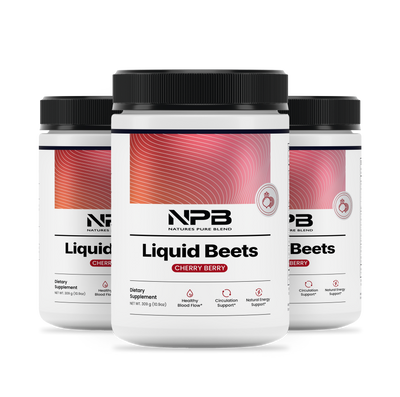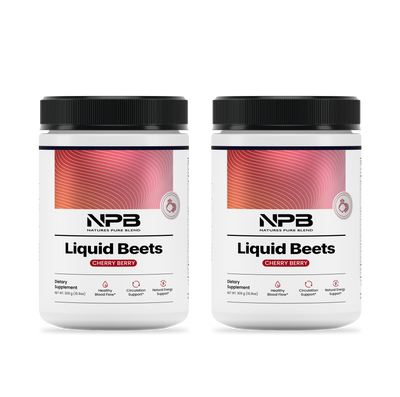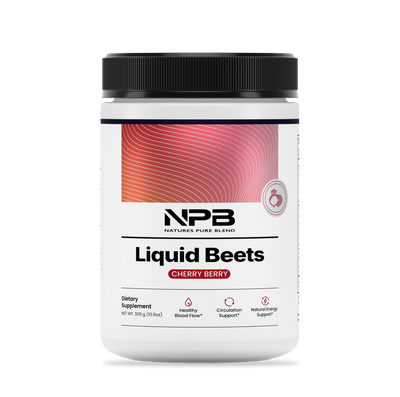As one of the world’s leading superfoods, beets truly have extraordinary properties. Not only are they rich in vitamins and minerals, they also have a low calorie density, making them great to add to any meal at little to no cost. [1] Although, one of the most important benefits that is part of beetroot’s health craze is the fact that it can help to reduce blood pressure. [2] The reason this vegetable is able to accomplish such things is because of a molecule called nitric oxide.
Nitric oxide is a molecule naturally produced in your body that helps to widen blood vessels and allows for more circulation. This molecule can be produced through only two pathways, which is either nitrate consumption from foods or synthesis from the amino acid L-arginine. [3] It is through these pathways that your body can then start using nitric oxide to boost circulation and lower blood pressure, but your ability to do this declines naturally as you age. [4]
It’s important to note that foods with high sodium content and high saturated or trans fat content are often the most harmful to your blood pressure. Continued consumption of these foods can increase your risk of chronic kidney disease, one of the many dangers of hypertension. [5] This is why increasing your nitric oxide production, as well as altering your diet to include beets and other superfoods can be very beneficial to anyone suffering from hypertension.
Magnesium is a notable mineral contained in beets that has many responsibilities, including regulating blood pressure. [6] It does this by stimulating and supporting nitric oxide production in your body. [7] Furthermore, the high concentration of nitrates in beetroot is necessary for your body to convert into nitric oxide. All around, beets have been shown to support the lowering of blood pressure, and its most effective when you lower the sodium and fat contents in your diet as well. [8]
